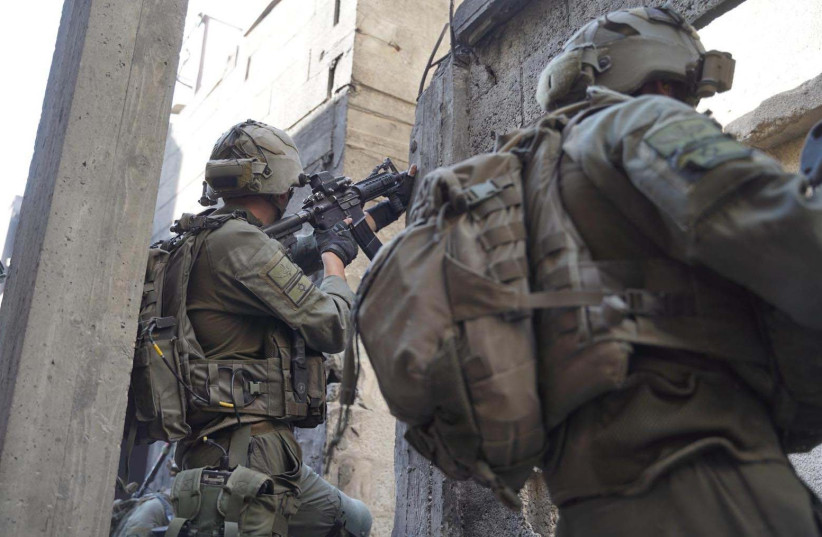Reserve Senior Warrant Officer Israel Socol, 24 years old from Karnei Shomron, was killed on Monday in a severe incident in the south of the Gaza Strip.
In this incident, buildings collapsed on the soldiers inside due to an explosion. Socol, a fighter in Battalion 8208 of Brigade 261, is survived by his parents, Yehoshua and Marina, and four siblings.
Yigal Lahav, mayor of the Karnei Shomron Regional Council, eulogized him: "Israel, a beloved young man, intelligent, with a huge smile and a big heart full of generosity, fought for the security of Israel."
Socol’s father, Yehoshua, spoke poignantly about his late son, Israel, in an interview on 103FM.

Father speaks of fallen son
"My son had strong opinions about the conduct of the war and how Israel handled it," Yehoshua Socol recounted. "He often expressed his frustration, saying the army was stumbling, during our conversations - whether he had just returned from duty or we were speaking over the phone."
His recounting of Israel's words highlighted a pivotal moment: "In one of our conversations, he was unequivocal in his stance. He believed that when Benny Gantz and Gadi Eisenkot replaced Bezalel Smotrich and Itamar Ben Gvir in the security cabinet, all religious soldiers should have immediately removed their uniforms and gone home. He felt so strongly about this, but since it didn’t happen, he stayed, unable to make that move himself."
When asked how these convictions manifested in the field, Yehoshua Socol responded with philosophical depth: "It was always clear to me, an issue of sanctifying or desecrating the name. As Rambam writes, if people don't understand your actions, even if they're right, it's a desecration. If the public fails to see lions being led by donkeys, one must stand with the lions."
Yehoshua Socol also shared memories of Israel's life outside the military. "After his military service, Israel returned to the Birkat Moshe Yeshiva. However, the onset of COVID-19 disrupted his plans, leading him back to the army," he recalled. Speaking about Israel's military role, he noted, "He served in Givati, was a fighter and a communications sergeant. He was incredibly responsible, often discussing direct communications with the brigade’s officer."
He continued, "Following his discharge, Israel pursued a degree in physics at the Hebrew University. Before his studies began, he worked as a construction worker in Samaria, a job he truly enjoyed. His dedication to his studies was just as strong."
